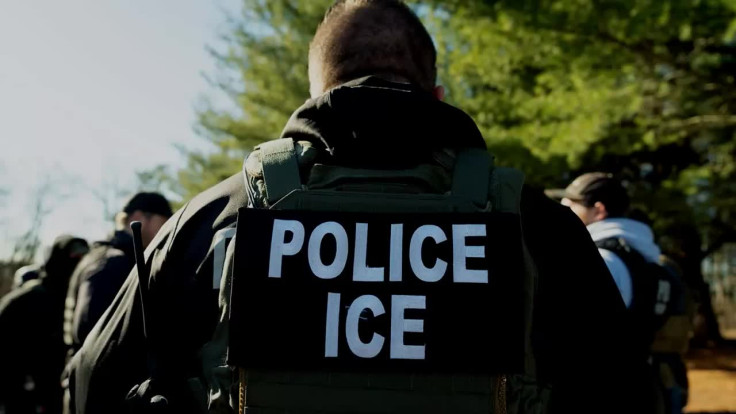
The Trump administration continues stepping up its mass deportation programs, with Immigration and Customs Enforcement (ICE) seeking to meet its quota of 3,000 daily arrests. And as officers show up to undocumented migrants' homes, workplaces and communities, new studies show the potential short and long term health effects it could have on migrant children.
According to a new analysis by the Migration Policy Institute, periods of high immigration enforcement like the one being seen in the U.S. at the moment, can have severe health and psychological consequences on immigrants, particularly children. For instance, given the fears that come from ICE arrests, undocumented migrants often decide to avoid seeking care, which often leads to further, and most costly, complications.
"Mild symptoms that go undiagnosed can turn a manageable situation into permanent damage," the report reads. "Some individuals need life-saving treatments such as dialysis. Higher-risk groups such as people with chronic diseases, pregnant women, and newborns need consistent health care."
Stories like these have been extensively reported by news organizations, especially since President Trump took office once again this past January.
A February report by KFF Health News recounted the story of a clinic in Chicago, which had seen a decline in patient attendance ever since ICE raids started. One of the patients, nurse practitioner Margaret Bavis said, skipped an appointment to get lab work done, but finally showed up a week later. The patient was in tears, and fearful she could be caught up in ICE raids and separated from her family.
"Right now, I just am so afraid. I can't go anywhere," Bavis recalled the patient saying.
Increased fears to leave home were exacerbated this year after President Trump rescinded a policy that granted protection from deportation in "sensitive locations" like schools, hospitals and places of worship. As a result, individuals may have lost access to information vital to community health and well-being.
"Health care facilities are among locations that play a central role in providing individuals with key information in trusted environments... school-provided services are an opportunity to ensure the well being of children, through vaccination schedules, meal programs, and mental health services. And faith groups not only offer spiritual guidance and community support during hard times, but they also use some of their resources to serve the less fortunate through information-sharing, food banks, and by providing shelter and related services," MPI argues.
Psychologically, collective stress and stigma against specific communities can also lead to anxiety and depression, which can disrupt daily activities and reduce productivity at work and school.
Another MPI analysis from the first Trump administration showed that during periods of increased arrests, close to 6 in 10 Latino high school-age youth either knew someone who had been deported or feared they, or a relative could be deported. More than half of Latino students had experienced anxiety, post-traumatic stress disorder (PTSD) or depression.
MPI suggests that in order to maintain societal order and ensure the well-being of communities, the Trump administration must bring back the sensitive locations protections, as well as "re-enshrine the idea of safe spaces."
"This would ensure that immigrants and their children can get needed preventative health care and medical treatment, at a minimum, as well as safe access to faith-based institutions and schools, which are important places for immigrant parents to share and receive health information for themselves and their children."
© 2025 Latin Times. All rights reserved. Do not reproduce without permission.








